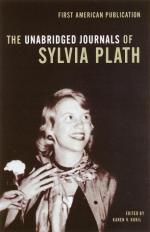|
This section contains 10,288 words (approx. 35 pages at 300 words per page) |

|
SOURCE: Ramazani, Jahan. “‘Daddy, I Have had to Kill You:’ Plath, Rage, and the Modern Elegy.” PMLA 108, no. 5 (October, 1993): 1142-56.
In the following essay, Ramazani argues that Plath's poems expressing grief fit the criteria of modern elegy and that Plath expanded the genre by adding a tone of abiding anger.
“How they grip us through thin and thick, / These barnacle dead!” Plath wryly observes in “All the Dead Dears” (Poems 70). More than all the other dead dears, Plath's father grips her through poem after poem. Dead when Plath was eight, he became the “buried male muse” of her work (Journals 223). She explicitly evokes his death in her novel, journals, and stories and in various poems, but perhaps the finest works elicited by his loss are the elegies Plath wrote between 1958 and 1962: “Full Fathom Five,” “Electra on Azalea Path,” “The Colossus,” “Little Fugue,” and “Daddy.” With these works, Plath...
|
This section contains 10,288 words (approx. 35 pages at 300 words per page) |

|


